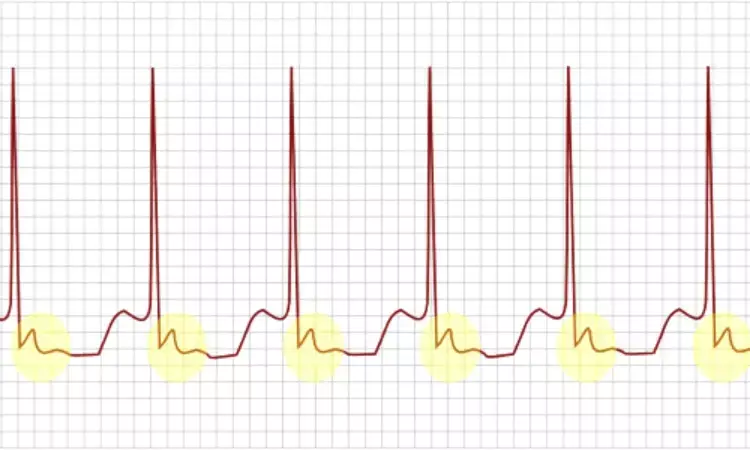- Home
- Medical news & Guidelines
- Anesthesiology
- Cardiology and CTVS
- Critical Care
- Dentistry
- Dermatology
- Diabetes and Endocrinology
- ENT
- Gastroenterology
- Medicine
- Nephrology
- Neurology
- Obstretics-Gynaecology
- Oncology
- Ophthalmology
- Orthopaedics
- Pediatrics-Neonatology
- Psychiatry
- Pulmonology
- Radiology
- Surgery
- Urology
- Laboratory Medicine
- Diet
- Nursing
- Paramedical
- Physiotherapy
- Health news
- Fact Check
- Bone Health Fact Check
- Brain Health Fact Check
- Cancer Related Fact Check
- Child Care Fact Check
- Dental and oral health fact check
- Diabetes and metabolic health fact check
- Diet and Nutrition Fact Check
- Eye and ENT Care Fact Check
- Fitness fact check
- Gut health fact check
- Heart health fact check
- Kidney health fact check
- Medical education fact check
- Men's health fact check
- Respiratory fact check
- Skin and hair care fact check
- Vaccine and Immunization fact check
- Women's health fact check
- AYUSH
- State News
- Andaman and Nicobar Islands
- Andhra Pradesh
- Arunachal Pradesh
- Assam
- Bihar
- Chandigarh
- Chattisgarh
- Dadra and Nagar Haveli
- Daman and Diu
- Delhi
- Goa
- Gujarat
- Haryana
- Himachal Pradesh
- Jammu & Kashmir
- Jharkhand
- Karnataka
- Kerala
- Ladakh
- Lakshadweep
- Madhya Pradesh
- Maharashtra
- Manipur
- Meghalaya
- Mizoram
- Nagaland
- Odisha
- Puducherry
- Punjab
- Rajasthan
- Sikkim
- Tamil Nadu
- Telangana
- Tripura
- Uttar Pradesh
- Uttrakhand
- West Bengal
- Medical Education
- Industry
Early monomorphic ventricular tachycardia tied to long-term mortality in STEMI: Study

Sweden: Early monomorphic ventricular tachycardia (VT) compared to nonmonomorphic VT/VF (ventricular fibrillation) is associated with a higher risk of all-cause mortality in STEMI patients, concludes a recent study. The study appears in The American Journal of Cardiology.
Early ventricular tachycardia and ventricular fibrillation are shown to be associated with increased in-hospital mortality but does not impact the long-term prognosis in ST-elevation myocardial infarction (STEMI). Recent data support a differential approach to the arrhythmia type and indicate long-term mortality hazard tied to monomorphic VT.
Against the above background, Marina M. Demidova, Department of Cardiology, Clinical Sciences, Lund University, Lund, Sweden, and colleagues aimed to evaluate the prognostic value of early monomorphic VT compared to nonmonomorphic VT/VF in a nonselected cohort of STEMI patients.
The study included consecutive STEMI patients admitted for primary percutaneous coronary intervention from 2007 to 2010. Using the Swedish national SWEDEHEART registry, clinical characteristics were obtained. The occurrence and type of early VT/VF were verified in medical records.
Swedish Cause of Death Register was used to assess all-cause mortality 8 years after STEMI. A total of 2,277 STEMI patients were included (age 66 ± 12 years, 70% male), among them 35 (1.5%) with early monomorphic VT and 115 (5.1%) with nonmonomorphic VT/VF.
Key findings include:
- Patients with monomorphic VT had similar clinical characteristics compared to those with nonmonomorphic VT/VF.
- In total, 22 patients (63%) with monomorphic VT and 43 (37%) with nonmonomorphic VT/VF died by 8 years of follow-up.
- Monomorphic VT was associated with a higher risk of all-cause mortality compared to nonmonomorphic VT/VF in univariate analysis (HR 2.03) and after adjustment for age and history of myocardial infarction (MI) (HR 1.74).
The researchers conclude, "early monomorphic VT versus nonmonomorphic VT/VF in STEMI is associated with a higher risk of all-cause mortality and deserves further studies to refine risk stratification strategies."
Reference:
The study titled, "Relation of Early Monomorphic Ventricular Tachycardia to Long-Term Mortality in ST-Elevation Myocardial Infarction," was published in The American Journal of Cardiology.
Dr Kamal Kant Kohli-MBBS, DTCD- a chest specialist with more than 30 years of practice and a flair for writing clinical articles, Dr Kamal Kant Kohli joined Medical Dialogues as a Chief Editor of Medical News. Besides writing articles, as an editor, he proofreads and verifies all the medical content published on Medical Dialogues including those coming from journals, studies,medical conferences,guidelines etc. Email: drkohli@medicaldialogues.in. Contact no. 011-43720751


